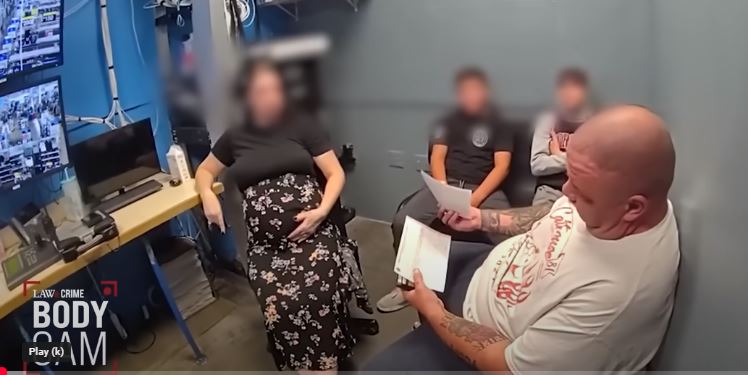Effective February 13, 2024
On February 6, 2024, the Michigan Supreme Court issued ADM File No. 2023-24, which adopts amendments to MCR 3.701 and the addition of MCR 3.715, .716, .717, .718, .719, .720, .721, and .722, effective February 13, 2024.
These changes follow the creation of the Extreme Risk Protection Order Act and amendments to the Firearms Act, the Code of Criminal Procedure, and the Revised Judicature Act in May of 2023.
- MCR 3.715 Definitions. Several terms are defined within this rule, including “complaint,” “existing action,” “minor,” “petitioner,” and “respondent.” In addition, MCR 3.715 indicates that the terms “dating relationship,” “possession or control,” “family member,” “guardian,” “health care provider,” “law enforcement agency,” and “law enforcement officer,” mean those terms as defined in MCL 691.1803.
- MCR 3.716 Commencing an Extreme Risk Protection Action. An extreme risk protection action is an independent action commenced by filing a complaint with the family division of the circuit court. A complaint may be filed regardless of whether the respondent owns or possesses a firearm and must be prepared on a form approved by the State Court Administrative Office and submitted with the complaint. An extreme risk protection action may only be commenced by
- the spouse or former spouse of the respondent;
- an individual who has a child in common with, has or has had a dating relationship with, or resides or has resided in the same household as the respondent;
- a family member;
- a guardian of the respondent;
- a law enforcement officer; or
- a health care provider, under certain circumstances.
MCR 3.716 also details requirements for the complaint, a complaint against a minor, and venue.
- MCR 3.717 Dismissals. Except as otherwise specified in the rules, an action for an extreme risk protection order (ERPO) may only be dismissed upon motion by the petitioner prior to the issuance of an order.
- MCR 3.718 Issuing Extreme Risk Protection Orders. Except as otherwise provided in the rule, the court must rule on a request for an ex parte order within one business day of the filing date of the complaint and must expedite and give priority to ruling on a request for an ex parte order. MCR 3.718 also specifies the factual requirements for granting an ex parte order as well as the procedures for immediate emergency ex parte orders, an anticipatory search warrant, and hearings. The court must expedite and give priority to hearings required by the extreme risk protection act and must schedule a hearing for the issuance of an ERPO under certain circumstances detailed in the rule.
- MCR 3.719 Orders. This rule details the form and scope of an order and stipulates the respondent’s response requirements, along with restrictions on concealed weapons and the process for surrendering firearms. Service, notice, and clerk of the court responsibilities are also covered in MCR 3.719.
- MCR 3.720 Modification, Termination, or Extension of Order. The petitioner may file a motion to modify or terminate the ERPO and request a hearing after the order is issued. The respondent may file one motion to modify or terminate an ERPO during the first six months that the order is in effect and one motion during the second six months that the order is in effect.
- MCR 3.721 Contempt Proceedings for Violation of Extreme Risk. In general, an ERPO is enforceable under MCL 691.1810(4)–(5), 691.1815(4), and 691.1819(4). MCR 3.721 outlines the guidelines for motions to show cause, service, search warrants, arraignment, pleas of guilty, scheduling or postponing hearings, prosecution after arrest, and violation hearings.
- MCR 3.722 Appeals. Appeals must generally comply with subchapter 7.200. Either party has an appeal of right from
- an order granting, denying, or continuing an ERPO after a hearing under MCR 3.718(D); or
- an order granting or denying an extended ERPO after a hearing under MCR 3.720(B).
The respondent has an appeal of right from a judgment of sentence for criminal contempt entered after a contested hearing.
The respondent has the lawful right to appeal a judgment of sentence for criminal contempt entered following a contested hearing.
Chief Justice Clement concurred with the proposed adoption of the ERPO court rules, but she wrote separately to address her concerns regarding inconsistent legal terminology used in the Extreme Risk Protection Order Act..
Among other linguistic inconsistencies, she emphasized that the Act “requires an individual to file “a summons and complaint” to initiate an ERPO action” but the nature of ERPO actions is consistent with that of a petition—not a complaint.
The Michigan Supreme Court has developed a range of SCAO forms aligned with the ERPO, showcasing their commitment to effective legal documentation.:
See the Court’s February 7, 2023 memorandum for more info.
Court Form Information
https://www.courts.michigan.gov/4908b5/siteassets/forms/scao-approved/recent-revisions/eoc_erpo.pdf
Related Articles
Drones – What Drones?
Jersey cops launched into the night sky with catapults to throw dreamcatchers at the unknown drones to entangle their props and bring em down! Just kidding - I think.Darrr.. What drones? Those drones pose no threat there are no drones. That's just a balloon,...
Cash For Kids Judge Pardoned (The Kickback Club)
Biden’s commutation for Judge in ‘kids for cash’ scandal should anger the entire universe.Biden’s commutation in ‘kids for cash’ scandal. BY MICHAEL RUBINKAMUpdated 5:32 PM EST, December 13, 2024A judge implicated in one of the most notorious judicial scandals in U.S....
Trump plans – How does Cannabis Business fit in?
You work hard. Now get ready to work harder to prepare to give more.President Biden's administration has proposed the reclassification of marijuana from a Schedule I controlled substance to a Schedule III drug, which recognizes its medical benefits. This significant...
When Can Police Take Your Dash Cam?
You work hard. Now get ready to work harder to prepare to give more.In Michigan, police can take your dashcam footage in specific situations, primarily when they believe it could serve as evidence in a criminal investigation. Michigan law permits officers to seize...
More Posts

When Can Police Take Your Dash Cam?
You work hard. Now get ready to work harder to prepare to give more.In Michigan, police can take your dashcam footage in specific situations, primarily when they...

People who are going to need a Lawyer – November 12, 2024
People who are going to need a LawyerMan so drunk field sobriety tests were ‘too dangerous’ sentenced to life in prison for repeated DWI convictions‘Several terabytes’:...

Cambridge Analytica data breach comes before court
Oral arguments in Facebook v. Amalgamated Bank will beginThe justices are set to review securities law as they hear arguments in a significant case linked to the 2015...

Search and Seizure – Consent or Plain view
The Fourth Amendment was established to protect individuals from unreasonable searches and seizures, yet there are exceptions.In Michigan, understanding the concepts of...

A drunk driving investigation, a car wreck and a blood draw
A Case Summary: People v. Blake Anthony-William BartonOn October 11, 2024, the Michigan Court of Appeals issued a decision in the case People of the State of Michigan...

Police say they can tell if you are too high to drive
Police say they can tell if you are too high to drive. Critics call it ‘utter nonsense’Haley Butler-Moore sped up to pass a semi on the highway when she suddenly saw...

Cannabis – The Rise and Fall and Trail of Survivors Pile Up
Thieves make off with 1,000 pounds of premium flower in cannabis from a corporate grower in Michigan. Then, the GM sells off 650+ pounds to pay employees.The recent...

If you have an LLC you must comply or face fines and possible prison
You work hard. Now get ready to work harder to prepare to give more.If you own or are a member of an LLC.You have a deadline of January 1, 2025Call us we can take care...

Compounding Charges Laws in Michigan
Understanding Compounding Charges Laws in Michigan Compounding charges refer to the illegal act of accepting or agreeing to accept a benefit in exchange for not...

Harris unveils new proposals targeting black men with cannabis legalization
"Harris unveils new proposals targeting Black men as she looks to shore up Democratic coalition" CNNAmid the ongoing national issues, Vice President Kamala Harris...
















